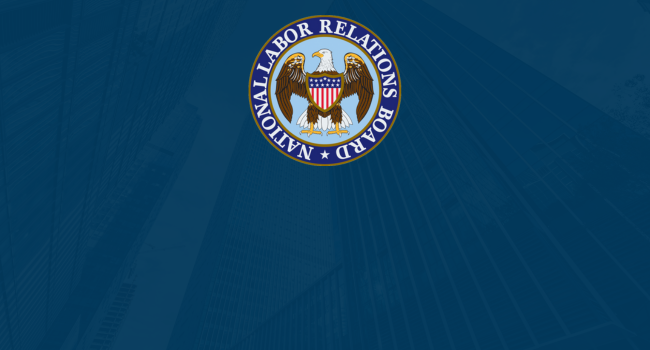
THE NATIONAL LABOR Relations Board has issued what it says is its final ruling on the standard for determining joint-employer status under the National Labor Relations Act, essentially broadening the definition of joint employer to any “entity that has an employment relationship with the employees.” However, the American Hotel & Lodging Association said the ruling is “devastating” for hotels and it is exploring legal options for challenging the NLRB decision.
NLRB’s new standard defines a joint employer to be any company that shares or codetermines one or more essential terms and conditions of employment. Those include:
- Wages, benefits, and other compensation.
- Hours of work and scheduling.
- The assignment of duties to be performed.
- The supervision of the performance of duties.
- Work rules and directions governing the manner, means, and methods of the performance of duties and the grounds for discipline.
- The tenure of employment, including hiring and discharge.
- Working conditions related to the safety and health of employees.
The final rule rescinds the 2020 final rule that was promulgated by the prior board and applies the new definition of joint employer to any entity that can control the essential terms of employment whether or not such control is exercised and without regard to whether any such exercise of control is direct or indirect. The board says the new rule “more faithfully grounds the joint-employer standard in established common-law agency principles.”
“The board’s new joint-employer standard reflects both a legally correct return to common-law principles and a practical approach to ensuring that the entities effectively exercising control over workers’ critical terms of employment respect their bargaining obligations under the NLRA,” said Chairman Lauren McFerran. “While the final rule establishes a uniform joint-employer standard, the Board will still conduct a fact-specific analysis on a case-by-case basis to determine whether two or more employers meet the standard.”
A ‘partisan gambit’
The new rule could impact the usual franchise relationship currently prevalent in the hotel industry as it could allow franchisers and franchisees to be held jointly liable for violations of the National Labor Relations Act and have joint bargaining responsibilities for unionized employees, according to a statement from AHLA.
The new joint-employer rule becomes effective Dec. 26. AHLA, which previously submitted comments to the NLRB protesting the rule change, said the new rule will limit opportunities for small businesses and entrepreneurs and threaten the franchising model.
“NLRB’s actions today are devastating to the hotel industry and the millions of people we employ. This is a partisan gambit to force unions on hotel franchisees and their employees as well as countless other small businesses and workers across the country,” said Chip Rogers, AHLA president and CEO. “NLRB’s goal is to coerce businesses to the bargaining table with workers they do not actually employ to artificially increase unionization. This dramatic shift will effectively dismantle the franchise business model – the single greatest avenue to successful entrepreneurship in American history and a system that has helped our industry build millions of well-paying jobs and careers. AHLA is reviewing opportunities to legally challenge this regulation to restore certainty for America’s lodging industry.”
The NLRB received more than 13,000 comments that it reviewed and considered in drafting the Final rule.





